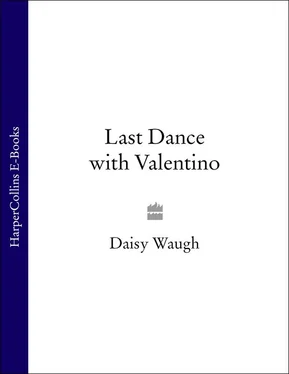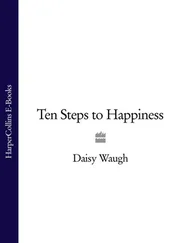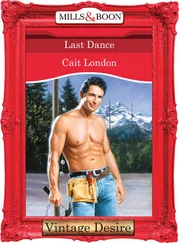My father coughed a bit louder.
‘Oh, do stop,’ Mr de Saulles said.
‘I wish I could stop, Jack. Sincerely. I do. ’ (Cough cough.) ‘I really think I should call a doctor.’
Mr de Saulles just kept shovelling in more of the griddled waffle, and nobody spoke.
‘I must say,’ the duke finally piped up, ‘you seemed perfectly fine last night. It’s rather boring of you to – suddenly decide you’re ill. Just like that.’
‘I couldn’t agree with you more. And I can’t tell you how sorry I am.’ Cough cough cough. ‘But last night is one thing. This morning, I hardly need to point out to you, Your Grace, is entirely another.’
Silence again. This time it was Mrs de Saulles who broke it. Looking not at her husband or at my father but at Rudy, she said, ‘Well, if you’re utterly determined that Marcus should paint me, Jack . . . Although honestly I can’t see why you would be . . . ’
‘Because, sweetest, you are my wife. And I should like to have a painting of you.’
‘Well, then, he might as well paint me now as later. I intend to be home in Santiago by the end of next month in any case.’
Clearly, it was the first he had heard of it. He looked at his wife – they all looked at her, the duke, the thin man with the waxy face, Miss Sawyer, my father – all of them looked at her, except the one whose attention she sought: Rudy, I think, made a point of looking anywhere else. He caught my eye, briefly, sent me the smallest flicker of a smile, and I felt myself blushing.
So, the meal ended on what might be called a sour note. Papa got what he wanted. As, of course, did Mrs de Saulles, even if her motivation was less immediately obvious. After breakfast Mr de Saulles climbed into his car, Miss Sawyer at his side and a black cloud over his head. He drove off without addressing a word to anyone, except his son. There was a moment, as the boy clung to his father’s leg, when it seemed he might even have taken the child with him, simply scooped him up and dropped him in the back of the auto. But then he glanced at his wife, seemed to wince slightly at the look she gave him, and apparently thought better of it.
‘I shall come and fetch you in a day or two,’ he said instead. ‘Don’t cry, little fellow. Crying is for girls. Instead, Jack, as soon as I get into the car you must start counting. All right? And I promise you, before you have reached a hundred hours, I shall be here again! Understand? Start counting, Jack. I shall be back before you know it . . . And with a whole carful of toys!’
There was a grim, subdued flurry as the guests said their goodbyes. Nobody quite knew how to deal with my father, who stood before the front of the house, waving them off as if the house were his already. I think that was the first time I wondered if Papa was altogether – all there . It looks a bit rotten, seeing it on paper like that, but there was a hint of something unhinged about the utterly determined, quite shameless fashion of his standing there. I remember feeling embarrassed – worse: I felt ashamed.
Before getting into the waiting auto Rudy crossed the gravel to say goodbye to them both. He reached out for Mrs de Saulles’s languid little hand.
‘Mr Hademak will call you when I am ready for more dance classes,’ I heard her saying. ‘Perhaps in a day or two . . . ’
‘I shall look forward to it,’ he said. But he didn’t smile, and neither did she, and then she glanced at my father, so attentive to her – and even before the cars drove off, the two of them had started their slow wander back into the house.
Rudy said goodbye to me last. He sought me out, took my hand with both of his and, in a low voice that only I could hear, told me how he hoped we should meet again soon. ‘I enjoyed our dance together very much,’ he said.
And then he was gone, and we at The Box were left alone: Papa, Mrs de Saulles, young Jack, his Jane Eyre and the rest of the servants. The place felt very still.
I looked across at the little boy, who was trying hard not to cry. God knows how I broke the ice – I wasn’t accustomed to children – but somehow I persuaded him to take my hand, and before long he and I were chattering happily and he was taking me to visit his nursery.
I remember he hesitated just as we were about to open the door. He looked up at me with those big brown eyes. ‘You know, after this, you probably shan’t like me terribly much,’ he said. ‘I mean to say when you see all my toys. You shall probably think I’m dreadfully spoiled.’
I don’t know what I answered – something soothing and untrue about having a nursery of my own back home in London, so full of toys I couldn’t open the door. ‘In any case, I’ve already seen your nursery, and so far I like you very much.’ And suddenly, inexplicably, he simply melted into giggles.
It’s nothing. Just a stupid thing. But something about the way he laughed – far from dislike him – I loved him right away. He was the sweetest, warmest, frankest, most humorous, most entirely adorable little boy I ever met . . . But I am getting maudlin. I miss him. That’s all. And I wonder whatever became of him.

Papa was a slow worker. He always pretended not to care about his work, presumably because he had failed to make much of a mark with it, but I know he did care, passionately. Not just from the look of concentration that came over his face as soon as he had pencil in hand, but from his stubborn unwillingness ever to accept that a piece of work was finished. Perhaps if he had cared a little less he might have done a little better. Probably. It doesn’t matter now, in any case. Either way, when the time came for him to leave The Box he had little to show for all the hours he’d spent closeted away with his muse: a canvas that was almost blank – and a collection of small sketches. But they were wonderful sketches. Some of the best of his I ever saw. In spite of his ardour – or perhaps because of it – he had uncovered something in her that most people never saw: the harshness in her elfin face; and in those big doe eyes, an unmistakable gleam of ruthlessness. If only he could have heeded it as sharply as he drew it. But taking heed was not in his nature. By the end of that first day, he and Mrs de Saulles had retired to her bedroom, and for the next few weeks we saw very little of them.
In the meantime Mr de Saulles barely appeared at The Box. When he did, it was with a large group of friends in tow, and Papa would usually start up with his coughing again and stay in bed. But young Jack was not forgotten. He often travelled back and forth to visit his father in the city. And each time, when he returned (with a nursery-maid, sadly never with me – I don’t think Mr de Saulles much wanted to be reminded of anything related to my father’s existence) he looked exhausted. I used to tell him about the long nights I spent with my own father and his friends back home in London. ‘The trick,’ I said, ‘is to learn to sleep while still at the table, in a position that looks as though you’re awake. Then they won’t disturb you, and you won’t disturb them.’
We used to practise it together, with the two elbows in front and a hand covering each cheek, carefully obscuring the eyes. Finally, after we agreed he had perfected the position, he lifted his face from his chubby young hands, and he said, with that sweet formality of his, ‘And now I shall never be able to forget you, Jennifer, even after you leave, because I shall think of you every time I fall asleep.’
Oh . . . but damn it! Now the tears are welling again, and I shall ruin everything . . .
Читать дальше













